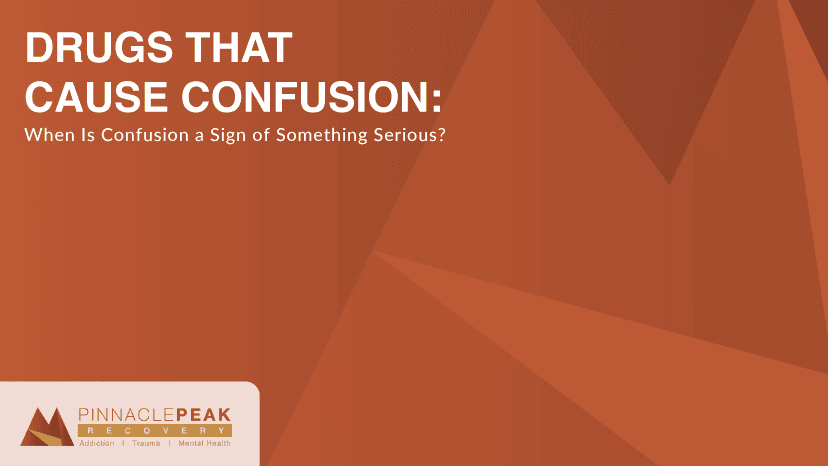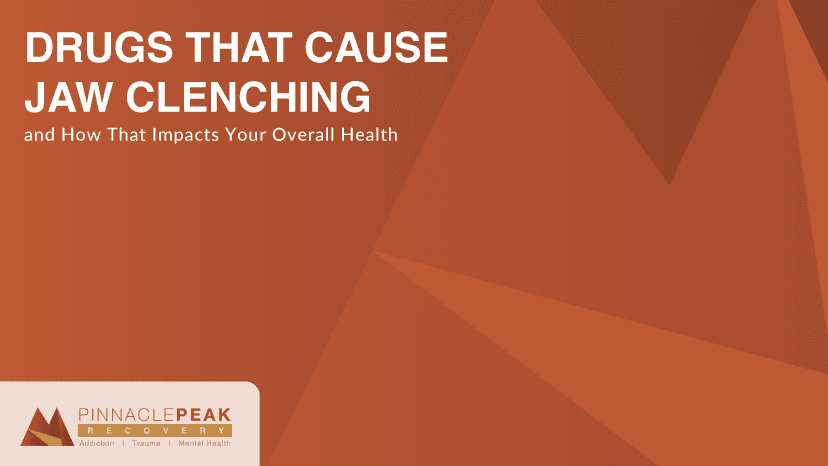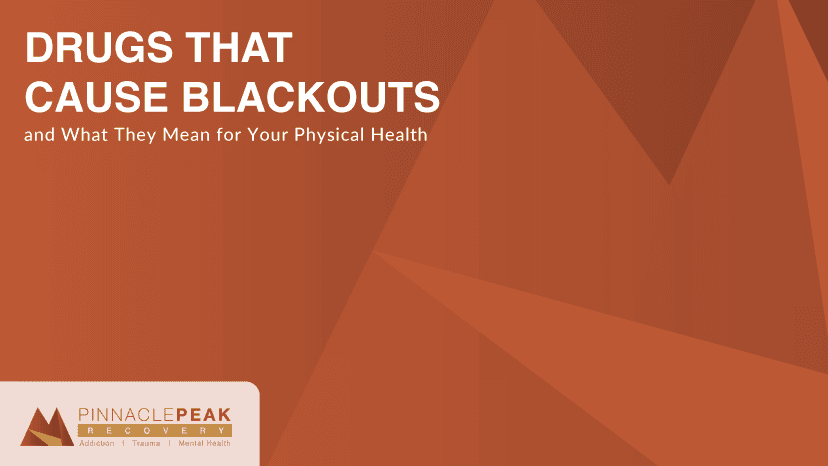Drugs That Cause Excessive Blinking
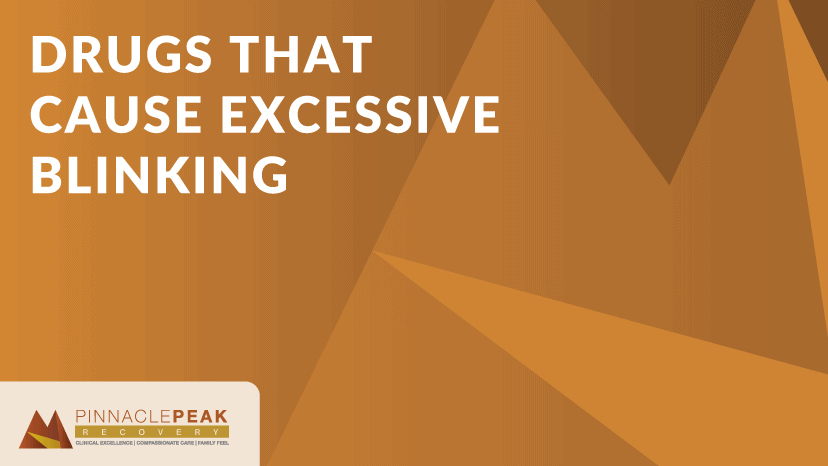
Many people know that taking certain prescriptions or substances can cause side effects. Some that come to mind might be nausea, dizziness, fatigue, or even headaches, but what about symptoms like excessive blinking? Is that something you should be concerned about? If so, what exactly causes it?
There’s more than one reason someone might be experiencing rapid blinking, and knowing the list of potential causes can help narrow down the source.
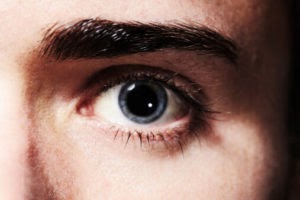
We understand the importance of education here at Pinnacle Peak and want to provide you with the resources you need to better understand what might be going on in your body.
When Should You See A Doctor For Excessive Blinking?
Anytime you start experiencing a consistent change in your body that is bothering you or seems noteworthy, it doesn’t hurt to bring that up to a doctor. Many times symptoms can be the sign of something potentially bigger, and alerting someone early can help better track and prevent things from worsening.
What to Know About Substance Use Disorder and Eye Changes
There are multiple substances that can cause a variety of eye-based side effects. We’re going to go through a few of the more common reasons behind excessive blinking and what substances are the most common root cause of the symptom.
- Dry eyes - Dry eyes can present themselves as discomfort, itchiness, red eyes, watering, light sensitivity, and excessive blinking. Many over-the-counter medications can have dry eyes as a side effect, such as blood pressure medicine, antihistamines, birth control, painkillers, and antidepressants. While not a serious condition, it can be uncomfortable. Dry eyes can be treated with eye drops, but if you’re worried about this side effect, you should bring it up with your doctor.
- Reduced Eye Blinks - While this is the opposite of excessive eye blinking, reduced spontaneous eye blinking has been shown to occur as a side effect of long-term cocaine use. This can lead to irritated and red eyes due to dryness, as well as excessive watering.
- Pupillary Miosis/Mydriasis - Pupillary miosis is the shrinking of the pupil whereas pupillary mydriasis is the dilation of the pupil. These two conditions can be caused by substance use. Miosis is normally caused by opioids and mydriasis is normally caused by cocaine. These can lead to impaired vision, light sensitivity, and dizziness. If you notice a drastic change in your pupils, especially if they are two different sizes, you should contact your doctor.
- Retinal Vascular Occlusive Disease - This condition is the shrinking or hardening of the veins that provide blood flow to the eyes. This can lead to partial or full vision loss depending on severity and has been seen to develop as a result of long-term meth or cocaine use.
- Tardive Dyskinesia - Tardive Dyskinesia is a condition where a person has involuntary muscle movements, primarily in the facial area. This can result in uncontrollable lip smacking, blinking, and twitching. This condition normally develops from long-term medication use, mainly seen as a side effect of antipsychotic medications, antidepressants, anti nausea medications, and dopamine-receptor blockers.
- Blepharospasm - Blepharospasm is a neurological disorder that affects eye movement. It usually starts with minor symptoms such as eye twitching but progresses over time to a point where people have difficulty opening or closing their eyes. This can lead to potential functional blindness due to being unable to keep your eyes open. This is also known to be caused by the long-term use of antipsychotic medications.
If you notice a change in appearance or behavior in yourself or the eyes of a loved one, you should bring it up to a medical professional.
Call Us To Get The Help Your Loved One Needs For their Addiction Treatment.
Will Long-Term Substance Use Disorder Cause Me to Go Blind?
Long-term substance use can come with a variety of potential risks, including the blindness or damage to your eyes and vision in general. There are a few ways this can develop. One of them is through orbital disease.
Orbital disease is when you have swelling near or in your eyes that impacts their movement. In many cases this develops as an extension of sinusitis, which can be developed due to long-term cocaine use. The signs of orbital disease include sudden pain and swelling, partial vision loss, the bulging of one or both of your eyes, or double vision. If you experience any of these symptoms, it’s important to seek medical assistance or potentially risk further damaging your vision.
Another potential consequence of long-term substance abuse is the development of endophthalmitis. This is normally brought on by contaminated needles and other tools of injection in combination with substance use. Endophthalmitis is a type of infection that occurs within the tissues and fluid of the eyes. It can blind you if it’s not treated quickly. Here are some symptoms of endophthalmitis you can look out for:
- Eye pain
- Red eyes
- Discharge from your eyes, including white or yellow pus
- Swollen or puffy eyelids
- Blurred, decreased, or lost vision
There are other conditions that can impact your vision. Long-term use of meth and cocaine can impact the blood flow to your eyes, which can lead to partial or full vision loss. Age-related macular degeneration, which causes loss of sight in the center of your field of vision, can be accelerated or impacted by alcohol and tobacco use. If you start experiencing any symptoms involving your vision or eyes, it’s best to seek medical help in order to have the best chances of reducing potential damage to your vision.
Treatment Options for Substance Use Disorder at Pinnacle Peak
Here at Pinnacle Peak Recovery, we offer many treatment options to help those looking to recover from substance use disorders of all kinds. We have a team of kind and compassionate medical professionals who are here to help you on your journey. Recovery and life-long success is possible and we’re here to help guide and support you through that process.
We offer drug detox, residential, and outpatient treatment options. We offer 12-step treatment options but also understand that every patient is unique. Not every treatment plan is a perfect fit for every person, which is why we have other options available as well such as Cognitive Behavioral Therapy and other evidence-based treatment techniques.
If you or a loved one is wanting to stop substance use or needs help finding the confidence to start recovery, we’re here to help. If you want to learn more about our treatment options, or have any questions at all, give us a call today at 866-377-4761.
Let Our Professional Staff At Pinnacle Peak Recovery Help Your Loved One With Their Addiction.
FAQs About Drugs That Cause Excessive Blinking
When is eye blinking a problem?
If you start blinking more than normal over a long period of time, such as a day or two, it might be important to start looking into the reasons behind it. Your vision is important and it’s better to be safe than sorry.

